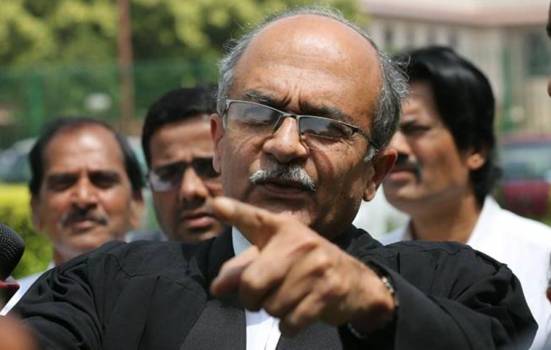By Rupali Gupta-
Bar Human Rights Committee of England and Wales(BHRC) criticize the recent judgment of the Indian Supreme Court over Prashant Bhushan of contempt of court for his two tweets.
The judgment was delivered by a bench of Justices Arun Mishra, BR Gavai, and Krishna Murari on 14th August in its 108 pages long judgment. The bench stated that “if such an attack is not dealt with, it may affect national honor and prestige”.
The statement made by BHRC in which they are talking about the rights of lawyers and their rights to freedom of speech and expression defined under Article 19(1)(a) of the Indian constitution. The statement says –
“We call upon the Supreme Court of India to:
· Enable an effective review process of the decisions of the Court to instigate contempt proceedings of its motion and to convict Mr. Bhushan of criminal contempt;Stay sentencing of Mr. Bhushan until such the review has been conducted;
In any event, discharge Mr. Bhushan from serving any punishment for the offense, commensurate with the broader context of public debate and the right to freedom of expression and legitimate criticism that the legal profession is entitled to exercise.”
“We also call upon the Government of India and the Parliament of India to abolish with all due expediency the continued statutory offence of criminal contempt by scandal, preserved in section 2(c)(i) of the Contempt of Courts Act 1971, as a violation of the fundamental right to freedom of expression, speech and legitimate criticism.”
According to an old English common law, scandalizing the court, judiciary or judges is the offense. In England the offense had not been prosecuted for over 80 years and as such, the Law Commission recommended its abolition in 2012, which subsequently took place through the Crime and Courts Act 2013. The Law Commission concluded the offense is in principle an infringement of freedom of expression that should not be retained without strong principled or practical justification, is no longer in keeping with current social attitudes, and is unlikely to influence the behaviour of publishers.
However, the English jurisprudence shows that the offense relates to abuse of the judiciary of a fairly extreme and irresponsible kind. Criticism in good faith, as part of a discussion of a question of public interest, does not fall within the offense.
In concluding the SC stated that Bhushan tweets were not in good faith and were in fact “Scrurrilous” and “Malicious”. And the court also stated “did not hold in contemplation that lawyers are entitled to, and should have, the freedom to voice publicly legitimate criticism of how justice is administered.”

